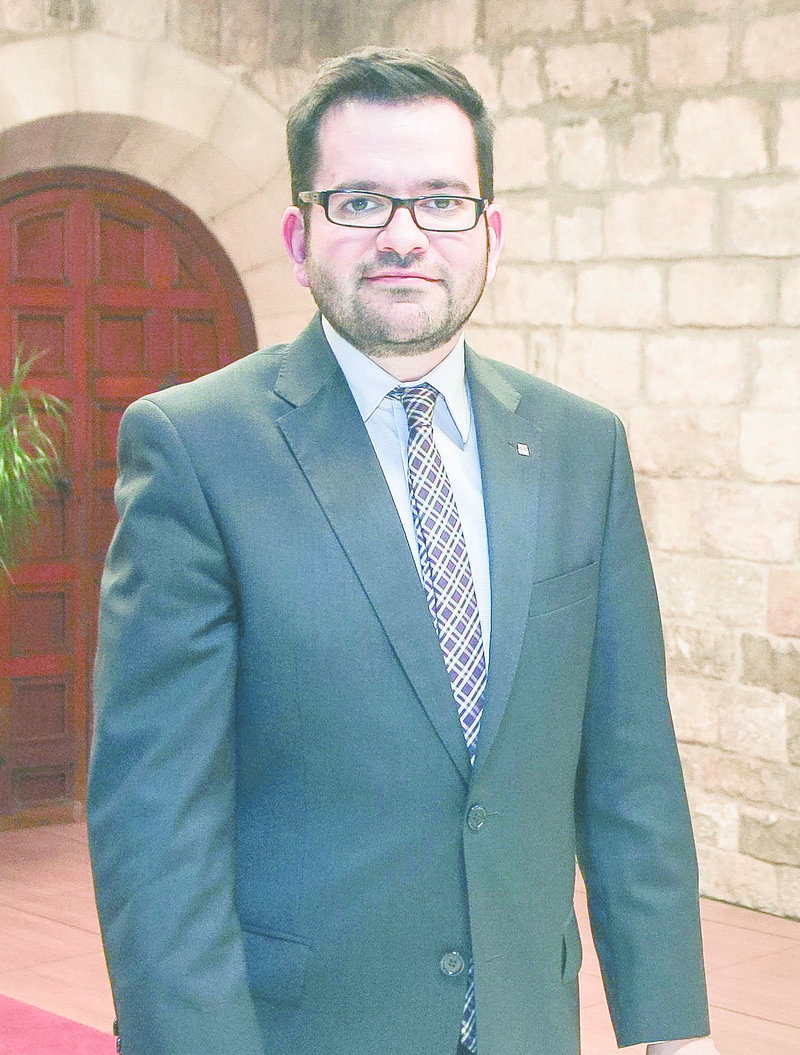Interview
'To be a state, you need a state's mentality'
Foreign affairs secretary argues for exhausting all options in convincing the international community to support a move towards Catalan independence and thus achieve recognition
The Catalan parliament has passed legislation boosting the extent of its reach abroad.
–It is a pioneering law, which makes Catalonia the only place in Europe with regional status but with a law allowing us to consolidate our activities abroad within a legal framework.
But is it constitutional?
–We have the conviction, and the Consell de Garanties Estatutàries agrees, that the law is constitutional. It was passed with wide parliamentary support, and we'd be surprised if the Spanish government opposed it.
Spanish diplomacy supervises all foreign activity. Has the boycott intensified?
–I'm not sure it can be intensified, as the hostility is so great, and not only towards democratic Catalan institutions working abroad. There are also Catalans in international institutions that have had difficulties in carrying out their duties.
Will the plebiscite elections be recognised abroad?
–We think we need this tool to know what support the government has going into independence. It is completely legitimate to use a legal mechanism to find out public opinion. After that, the government has to see what the reaction is.
Is the State's refusal to cooperate understood abroad?
–There is fatigue with the Spanish government's handling of the case. There is also perplexity at the proceedings by the public prosecutor; it is not understood how, in a democratic system, a political conflict can be solved by holding democratically elected politicians criminally responsible for fulfilling a public and parliamentary mandate.
Could that benefit the sovereignty process?
–It does it no harm. In the past two years, all activities of the Catalan institutions, and the negative reactions to them from the state institutions, allow us to justify the path chosen by the people of Catalonia. A process like this can only reach its end if all options are exhausted.
Artur Mas says a single unity candidacy list is vital for international recognition.
–The danger of different lists with different manifestos is that it blurs the message. We are in a place that requires clarity because often we have difficulty explaining what is happening in Catalonia. It is fundamental and vital that the tool we use to express the will of the people be absolutely clear. Clarity is what a referendum provides. Elections do not, and that's why we have to turn them into a tool that sends a single message.
How would separate lists play out abroad?
–We are talking about carrying out the referendum that Madrid would not let us hold. We do not have support abroad and nor are we a world power with great economic sway, which makes voting the only tool we have. And we only have it once. The conclusion is that fewer lists equal greater clarity.
Is there a chance of foreign mediation after the fact?
–We would have to see because it would depend on the reaction of the Spanish government. If there is no willingness to talk, we would make an appeal abroad. It is difficult to say at this point whether they would be prepared to intercede. Yet, there are signs of a willingness to find a lasting solution to the problem, which does not cause too much economic or financial turbulence.
At what point does the road map look for international recognition?
–The day after a government is elected, formal channels of communication would be established abroad: with the Spanish government, Brussels and influential European countries. Obviously, recognition can only come after a formal declaration of independence. However, there is more to it; if you declare independence that day after the elections, the most likely thing is that no one will offer recognition. The first thing they will say is that you are in no position to guarantee effective control of your territory. You have to show to the world that you are sovereign and that you can maintain relations with other countries.
Would asking for recognition be part of the announced activities for 2015?
–No. There is an obsession with that. If you want to be a state, you have to act with a state's mentality and you cannot beg for recognition. Recognition can only come when a declaration of independence has been made effective, and that would be at the end, when the right conditions have been fulfilled.
Leave a comment
Sign in.
Sign in if you are already a verified reader.
I want to become verified reader.
To leave comments on the website you must be a verified reader.
Note: To leave comments on the website you must be a verified reader and accept the conditions of use.

